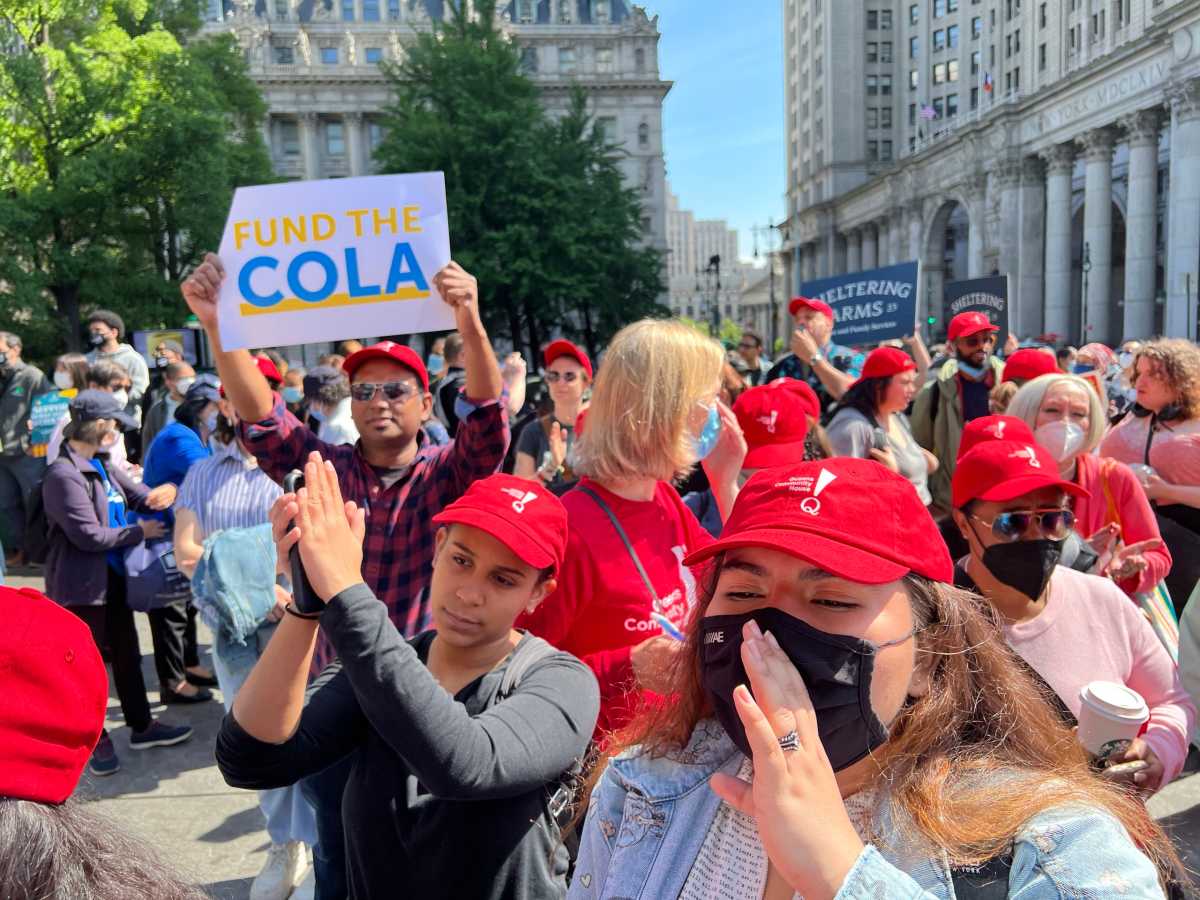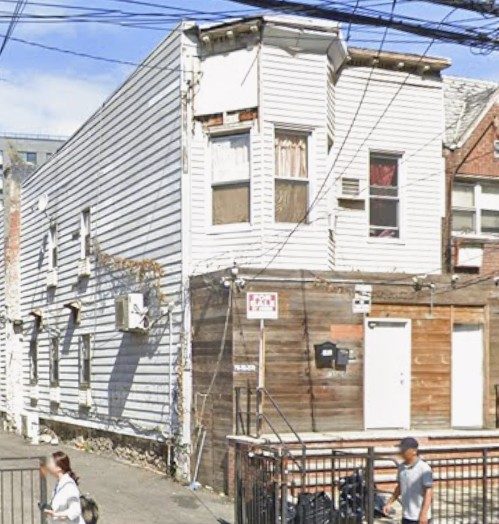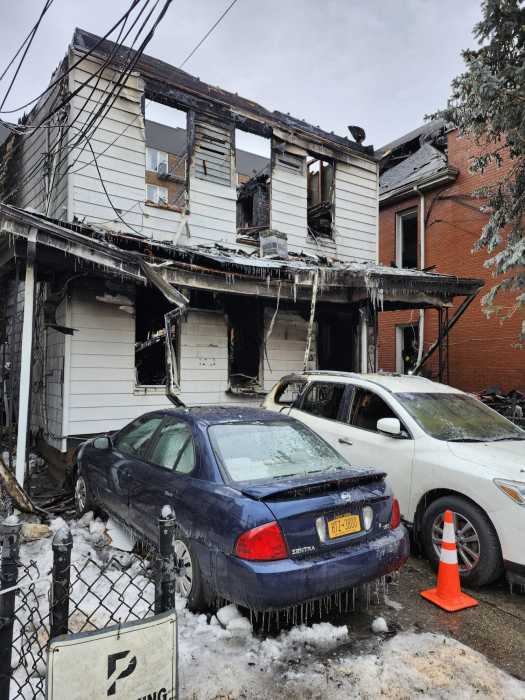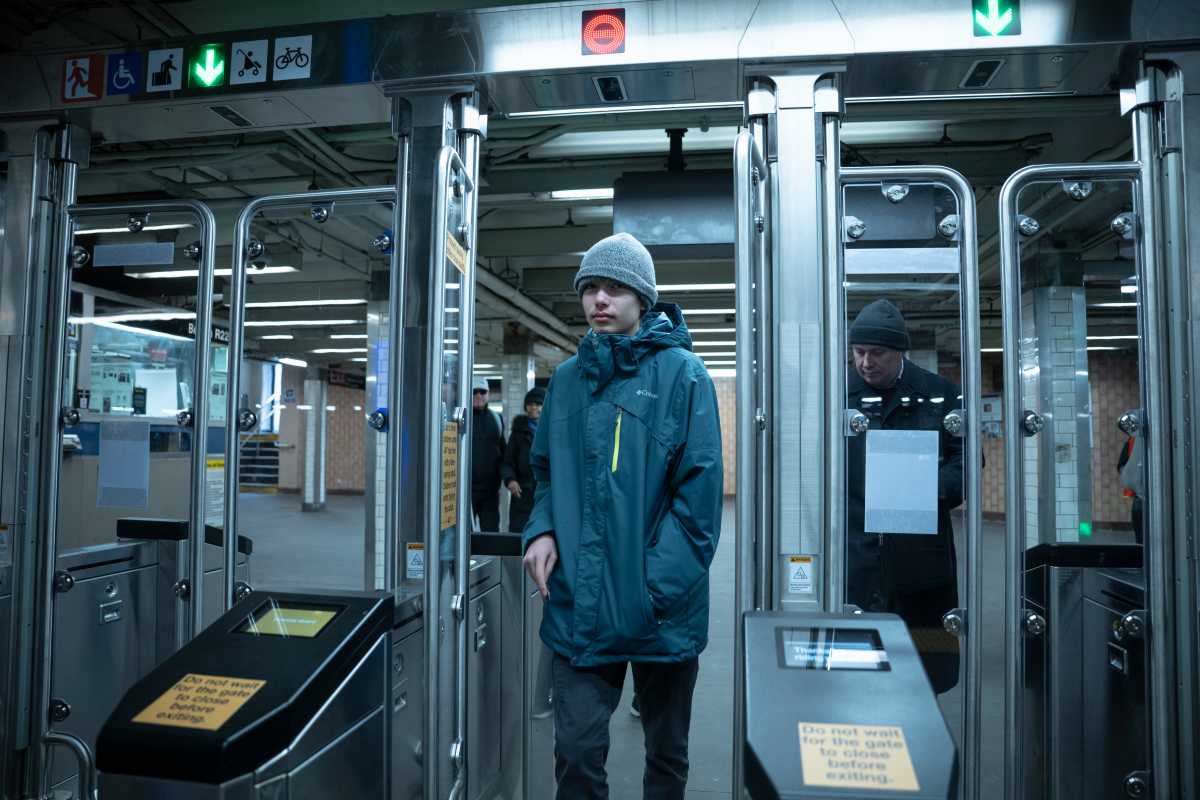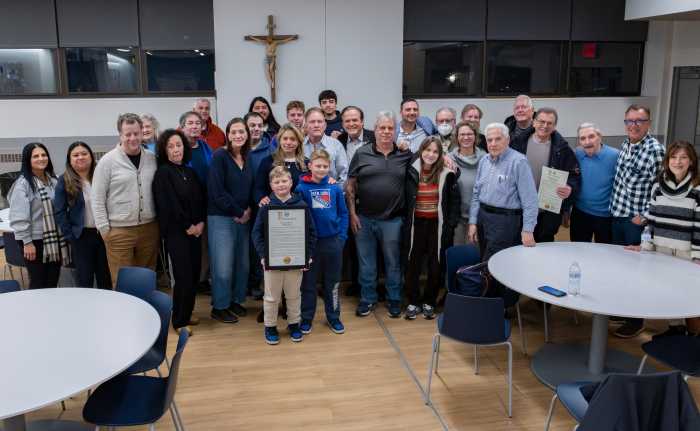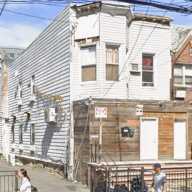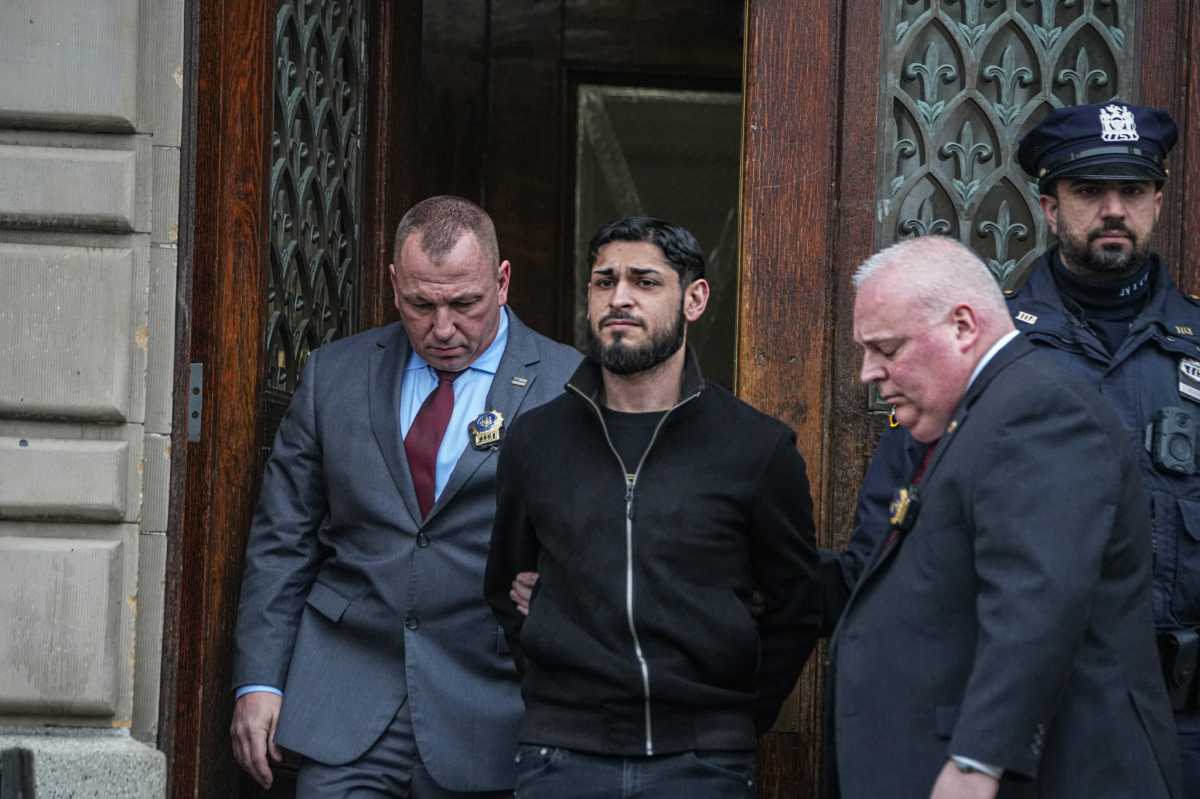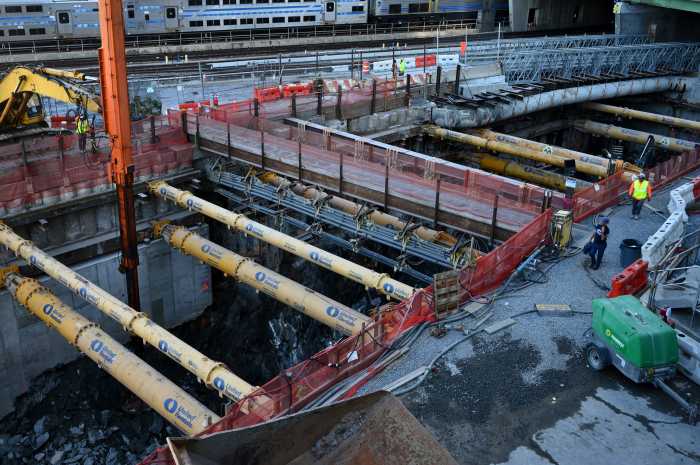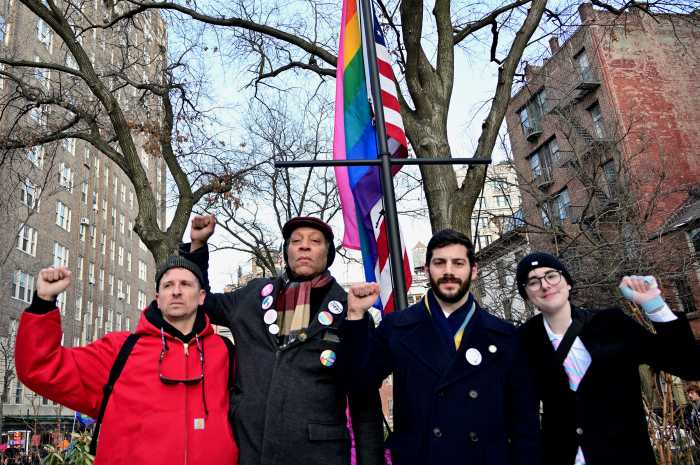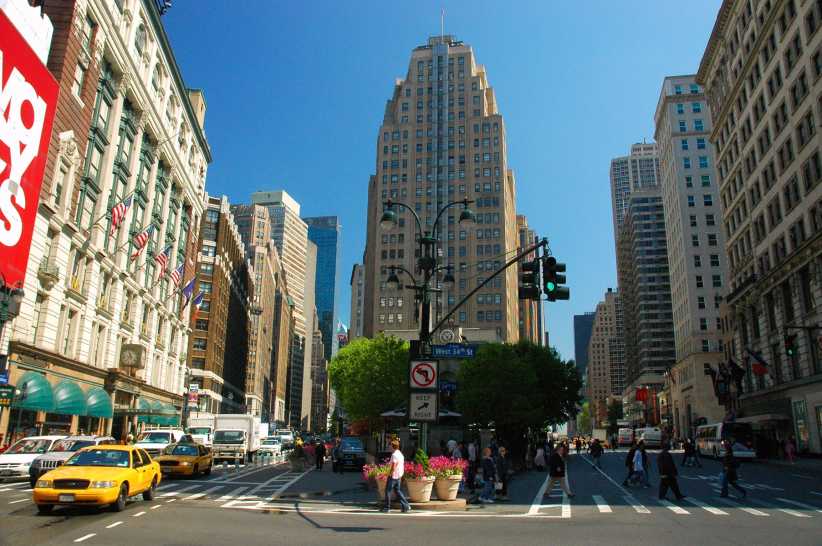More than a hundred nonprofit workers from the Forest Hills-based Queens Community House (QCH) joined a rally outside City Hall on May 25 to call for an end to government-sanctioned poverty wages for human service workers.
Nonprofit workers, elected officials and supporters gathered for the Just Pay campaign’s second in-person rally. QCH Beacon program director Marlena Starace used her time addressing the crowd to focus on the importance of acknowledging human service workers as essential workers who are dedicated to helping individuals and families across the five boroughs.
“We are losing reliable and passionate agents of change due to the rising cost of lying in New York City,” Starace said. “Fair pay would be an important step toward recovering from economic hardship and keeping essential workers in the city.”
The first rally was held in March when QCH workers joined more than 1,500 supporters of the Just Pay campaign.
“Queens Community House has always supported fair and consistent pay increases for our workforce, and now, with the rise in prices for rent, food, gas and everything else, our workers need these pay increases in order to make ends meet in New York City,” QCH Executive Director Ben Thomases said. “We need to take care of the people who take care of New York, and that’s why the Just Pay campaign is so important to us.”
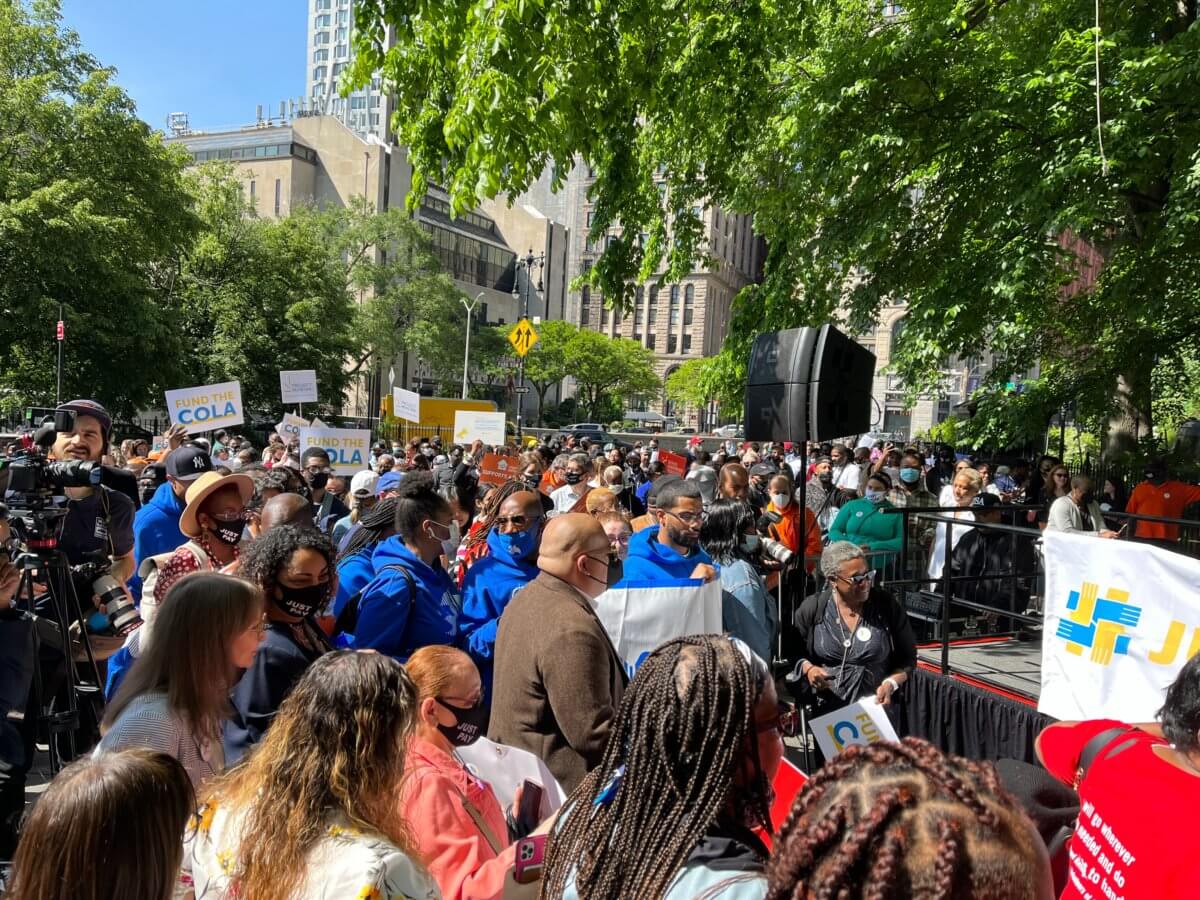
Human service workers are predominantly women and people of color and are among the lowest-paid in the city, despite the importance of their services. They are calling on Mayor Eric Adams to address these poverty-level wages demanding a 5.4% cost-of-living adjustment known as COLA, which keeps track of the consumer price index, after not having received a COLA for nearly three years.
“As a family support coordinator, I have seen the suffering of community members who need us,” QCH Family Support Coordinator Joelle Tirado said. “We are essential and should be paid accordingly.”
A Center for New York City Affairs report found that roughly two-thirds of nonprofit human services workers in New York City are living near poverty, with nearly 60% of them qualifying for at least one form of government assistance. Several of the workers spoke about experiencing homelessness and food insecurity and relying on the same services they provide.
The city government is the primary driver of salaries, as contracts either directly set low salary levels, or do so indirectly by establishing low rates for services along with required staffing levels on a contract. Low wages have resulted in high turnover rates and challenges recruiting qualified workers, lowering the quality of services that New Yorkers receive.
“We need to make sure our workers have enough money to live,” southeast Queens Councilwoman Nantasha Williams said.
City-contracted human service workers served on the front lines throughout the COVID-19 pandemic and they will be essential for the city to achieve an equitable post-pandemic recovery. They provide essential services on behalf of the city but are paid 70% of what their government counterparts make due to underfunded contracts.
“New York City’s human services workers are, in many ways, the backbone of our city by caring for the most vulnerable among us,” Sheltering Arms New York CEO Elizabeth McCarthy said. “Throughout the pandemic, the staff at Sheltering Arms never wavered in their dedication to doing what they have always done: showing up every day to serve children, youth and families who were facing daily struggles even before COVID-19.”
Her organization operates the Children & Family Services – Jamaica Youth Center among others across the five boroughs.
“The staff continued client-facing services, provided food pantries to the communities, laptops to children who never received one, and adopted telehealth sessions for mental health counseling,” McCarthy said. “It is time for New York City to pay its human service workers a wage that recognizes their value and we are proud to stand with our colleague organizations in demanding this for them.”

